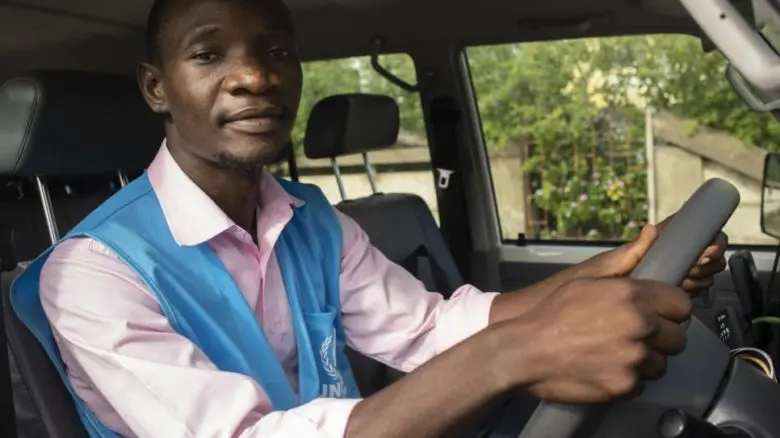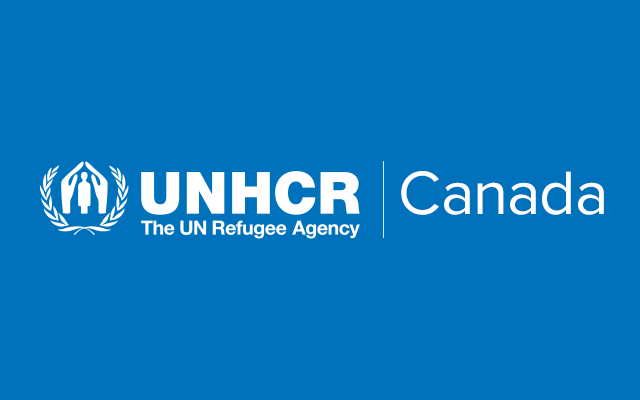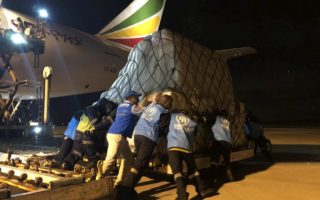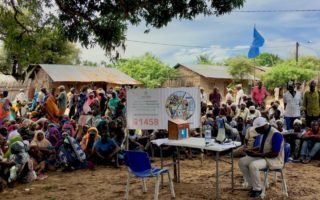
Luis Jose Faife sits in his UNHCR vehicle in Beira, Mozambique. © UNHCR/Helene Caux
UNHCR has more than 17,300 staff, most of whom are based in the field. Meet Luis Jose Faife, a driver in Mozambique.
Job title: Driver.
Years at UNHCR: Fifteen months. He joined two months after Cyclone Idai hit in March 2019, killing more than 600 people in Mozambique, neighbouring Malawi and Zimbabwe. Cyclone Kenneth struck weeks later, displacing about 2.2. million people in all. Climate change and the country’s long coast along the Indian Ocean make Mozambique even more prone to cyclones.
Why did you become an aid worker?
I am a lifelong resident of Beira town – one of the areas worst hit by Idai – and witnessed firsthand the devastation it caused.
We heard on the news that there would be a cyclone, but we kind of ignored it. We thought it would be a little wind and rain that would soon pass. Later that afternoon, it started to rain heavily. We were not prepared at all.
The wind was blowing very strongly, you could hear the sound – like a whistle. My house was shaking,I could hear the roof shaking and the screws were about to come off. In my neighbourhood, most of the houses were affected and many roofs were blown off. We saw coconut trees falling and mango trees uprooted.
I had a small bookshop in the market, so I went to check it out in the morning, after the cyclone. On the way, I was surprised – it was like another city! It looked like there were no roads and trees had blocked the roads. I saw people crying and others were saying, “There is no more life in Beira. What do we do now? Everything is destroyed!”
Living in Beira and seeing how the cyclone destroyed many lives made me want to help others – so I joined UNHCR as a driver.
What are the most rewarding/challenging things about your job?
It’s always rewarding to be in a position to lend a helping hand to people in need. I appreciate the responsibility I have as a driver, even though it’s very tough work. The important thing I remember from my training is that, when I am driving, everyone in the vehicle is in my hands. It means I have to work in a very calm and concentrated manner so that I ensure that people get to their destination safely.
I currently work in the north where more than 250,000 people have been displaced since 2017 by violent attacks by armed groups. This past year the attacks have intensified, and insecurity is the current challenge. It means we are unable to reach some areas where people are displaced and need our help and support, and that we can’t be with our families in this part of the country. It’s tough as I was used to seeing my family – my wife and two kids – every day when I was in Beira. But I’m here for a good cause and that makes it worthwhile.
I like the responsibility and the working environment – it is good and I have learnt a lot. You learn how to talk to people, you learn how to humble yourself and how to relate with many different people from all over the world.
I love that I have had a lot of experience here and that we can help people, talk to them and comfort them during the difficult times. Being part of the response, working with UNHCR, it means a lot to me.
What was your worst day at work?
I remember one day we were driving to Buzi – a district about 150 kilomteres from Beira and the most affected – to deliver relief items to people impacted by Idai. We had two trucks and it was raining. Both of them got stuck on the road and we couldn’t go further. We had to stay on the road the whole day and night, before the cars could be moved.
So many people were waiting for relief and they were so desperate, without anything to eat, nothing to cover themselves and no place to stay. It was a really tough time for all of us. We saw people who had lost everything and were hopeless.
What was your best day at work?
Most days I’m happy because I’m able to give back. In Beira and Buzi, we visited the people affected by the cyclones and we were able to take UNHCR staff to the field. We would carry supplies and food to the people affected and spend hours on the road going to the resettlement sites.
I used to work as a teacher. My training was helpful in the resettlement sites as it was much easier to be close to the children. I would play and interact with them to motivate them, so that they would forget about their situation, even if for a little bit.
I am currently helping people displaced by violence. It’s a new experience for me and I believe we are helping bring about a change in their lives, through the support and protection we provide.
How has COVID-19 affected your work?
Things have really changed. We have to wash our hands frequently, keep social distance and wear masks every time. I keep sanitizer in the vehicle at all times and sanitize it often. In the resettlement sites, there are wash stations and the first thing you do when you arrive is wash your hands. I feel that I need to be an example, as a humanitarian and show the people the right thing to do because when they see us following the guidelines, they do it too.
What motivates you to keep going?
That I can help others as a driver by delivering relief, distributing food and through all the support that we provide as UNHCR. I am thankful to be part of a team that helps people in many parts of the world. Right now I am here, doing something meaningful.
I believe that we can help people in many ways. Whoever you are and wherever you are, you can make a difference no matter what.
UNHCR, the UN Refugee Agency, works in 135 countries, helping men, women and children driven from their homes by wars and persecution. Our headquarters are in Geneva, but nearly 90 per cent of our staff are based in the field, helping refugees. This profile is part of a series highlighting our staff and their work.
Originally published on UNHCR on 20 August 2020





